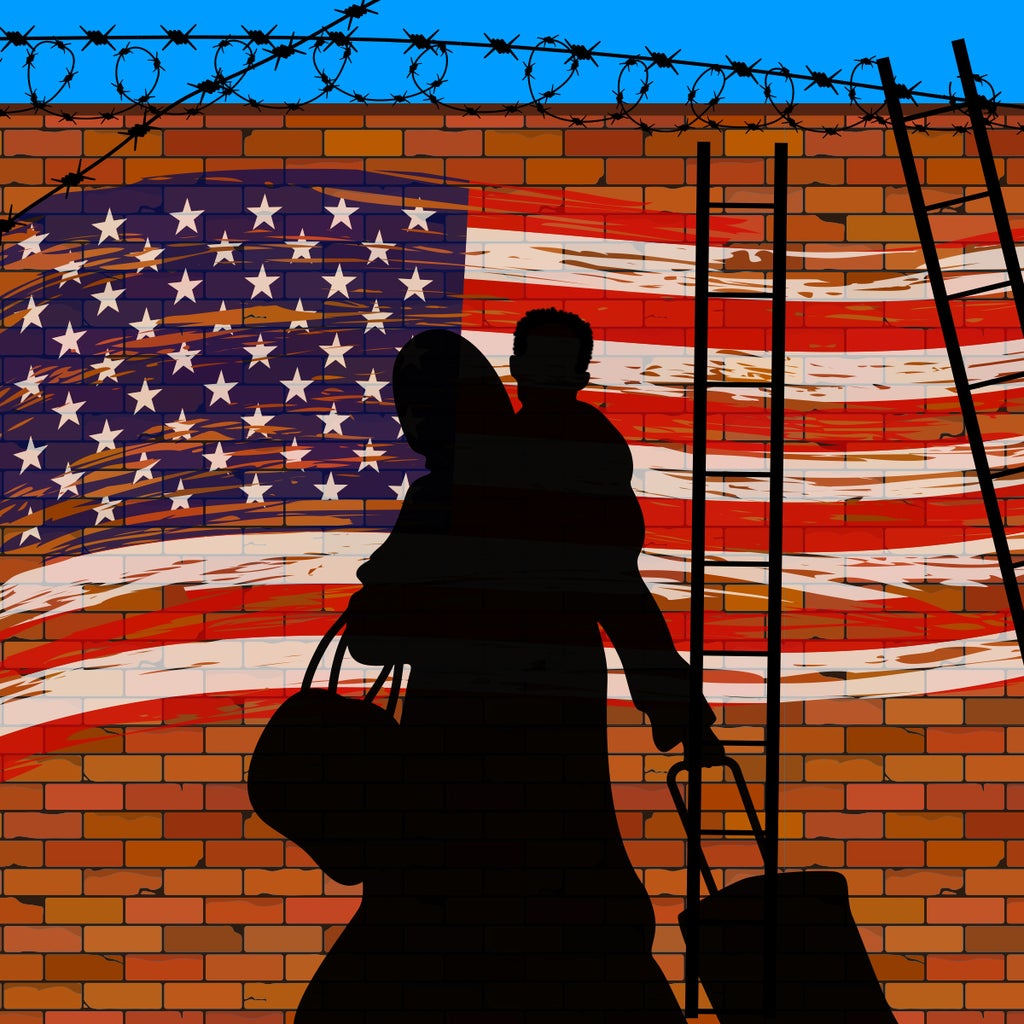
My first job in the U.S. was cleaning houses in the wealthy part of New York’s Long Island.
Inside the marbled halls of America’s expensive homes, I encountered challenges that shocked me, but were no different than the experiences of workers in Donald Trump’s real estate business. For three years, I worked 16-hour days almost every day for less than $400 per month. I was underpaid and isolated.
By the time I quit, my employer owed me $4,000. I have never seen a penny of that money.
Subscribe to our daily newsletter for the latest in hair, beauty, style and celebrity news.
Yet, my story echoes the stories of millions of Black and immigrant women. I was born in Guatemala and I came to the United States 16 years ago full of dreams—dreams of a better life for my family, especially my mother. She was a strong and courageous woman who raised and educated eight children while my father was away working. I am Garifuna—part of the African Diaspora in Central America. Once I arrived in the United States, I learned that women like me—immigrant and Black—have a long history of domestic work in the U.S.
It was Black women, who during and after slavery became domestic workers, sometimes paid and sometimes not. Today, there are two million domestic workers in this country, cleaning homes, caring for children, and supporting elders or those living with disabilities. We are mostly immigrant women and women of color. While we provide for other families, we often struggle to provide for our own children and families at home. And we are still excluded from many basic labor laws, making low wages, surviving abuse, and working without benefits.
In elections, women like us are ignored or tokenized. Our identities become a vote—Black, Latino, Immigrant, Woman—or we are completely made invisible, like in the last three presidential debates. For women like me, living at the intersections of being immigrant and Black, our existence is almost completely erased. We have yet to hear a comprehensive discussion about immigration, criminal justice, or the future of caring for our children and elders—the issues that deeply affect my life.
Yet we are America.
The color of our skin and our lack of papers makes our lives more vulnerable. But as demographics change, the future of our country and economy will continue to look more and more like me. By 2032, the U.S. will have a working-class that is majority people of color, especially Black and Latino, while today, more than half a million Black immigrants like me are still living in the shadows. I want politicians to know that it’s not enough to ask for our votes without caring about our issues.
This is why, while I am angered by Donald Trump’s hateful words, I know that as a country we can do better. Trump’s rhetoric has ignited xenophobia, and normalized hate. His unwillingness to admit not paying taxes is a lack of respect to every immigrant, who has contributed in taxes, yet had their wages stolen. Yet, Trump is no match for the movement that I am a part of; a diverse movement of women, who are undocumented, Black, and domestic workers. We are growing, and raising our voices to tell the next president that we won’t wait any longer for our issues to be on the agenda.
We are the women fighting for all of our Black and immigrant communities. Many of us, including women and children, are in detention centers imprisoned for fleeing violence and discrimination, and trying to protect our children. Many Black families continue to lose their lives at the border and at the hands of state violence in cities across the country. Every day, our communities are forced to live under the constant uncertainty of violence and economic injustice. For years, I faced the threat of deportation, fearing that one knock on my door would tear me from my home and my life. As a Black immigrant, I was confronted with multiple discriminations and the terror of police brutality within a broken system that has been at work for over 500 years. Even after receiving my permanent residence, I still worried that going back home to visit my family could mean losing the life I built in this country for over 16 years.
We have heard far too little from the presidential candidates about the need to reform our criminal justice system or the humanitarian crisis in Central America, the Caribbean and Haiti—so close to us. More than 1000 people lost their lives in Haiti because of the hurricane, yet the candidates have chosen to focus on insults and name calling. We are fighting for our rights and dignity as workers. Communities of color are more than bodies to be put in immigration detention, or working hands for the prison industry. Some of the fastest growing industries in this country, including care work and domestic work, rely on immigrant women and women of color like me. Yet, not a single presidential debate has raised the issue of long-term care or support for the people who provide it. Instead, domestic work has been degraded by Trump, who called Alicia Machado “Miss Housekeeping” as an insult.
We are tired of waiting for answers to our demands for justice and recognition. Even those of us who can’t vote, who have been silenced by not having citizenship or barred from the ballot box by racist and restrictive voting laws, are putting pressure on our families and communities to vote for the candidate who will put our issues on the table. We are domestic workers. We are women. We are immigrants. We are Black. We are not going anywhere and we will not let hate win.
Vote with us this November.
Gilda Blanco is an organizer with National Domestic Workers Alliance and a 2016 Dorothy Bolden Fellow.





